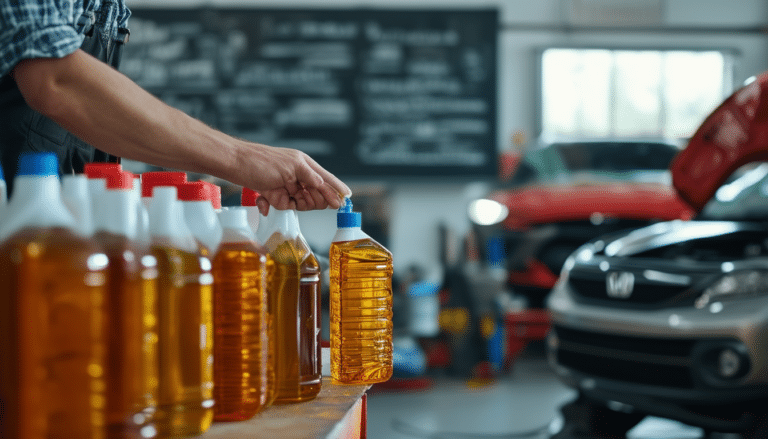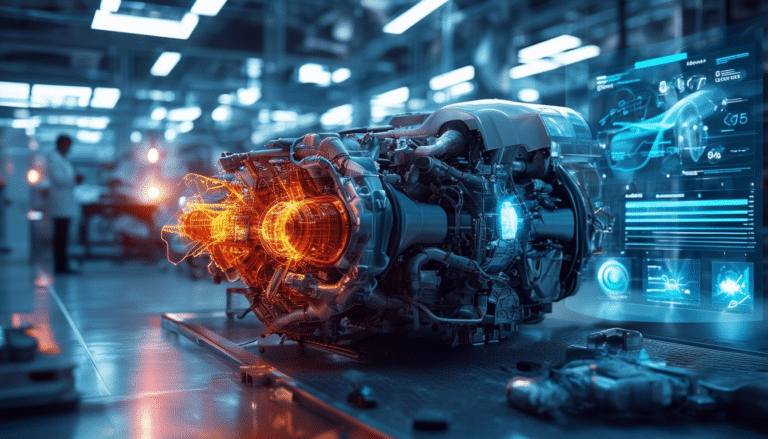How vehicle maintenance contributes to sustainability and fuel savings
The proper maintenance of vehicles plays a crucial role in promoting sustainability and fuel efficiency. Keeping a car in optimal condition not only ensures efficient performance but also contributes to reducing pollutant emissions and the rational use of energy resources. Unresolved mechanical issues, such as low tire pressure or an misaligned engine, can result in higher fuel consumption, thus increasing operational costs and negatively affecting the environment. Therefore, implementing preventive maintenance practices translates into both economic and ecological benefits, favoring more sustainable mobility.
The proper maintenance of vehicles plays a crucial role in sustainability and in optimizing fuel consumption. Keeping a car in optimal condition not only improves its performance but also translates into economic benefits by lowering gas expenses and reducing environmental impact. This article explores how proper maintenance can support energy efficiency and contribute to a more sustainable future.
The relationship between maintenance and fuel efficiency
Preventive maintenance is essential to ensure that a vehicle operates efficiently. This type of maintenance includes regular tasks, such as oil changes, brake inspections, and engine adjustments. Ignoring these practices can lead to higher fuel consumption, as worn or poorly adjusted components cause the engine to work harder than necessary. Common problems like low tire pressure can also significantly increase gas expenses.
Environmental impact of vehicle maintenance
The lack of proper maintenance not only affects the vehicle’s performance but also increases pollutant gas emissions. A poorly maintained car will emit more pollutants than a well-maintained vehicle. According to specialists, an old and poorly maintained vehicle can pollute as much as one hundred new cars. Therefore, the sustainability of the environment is heavily influenced by the care and maintenance of cars on the road.
Causes of high fuel consumption due to lack of maintenance
There are several causes for high fuel consumption in vehicles that result from neglect in maintenance. These causes include dirty air filters, worn spark plugs, or clogged exhaust systems. Each of these issues can cause an increase in the amount of fuel needed for the engine to function effectively, which in turn raises the user’s operational costs. For more information on this topic, the following link can be explored: Causes of high fuel consumption.
Best maintenance practices to maximize fuel efficiency
Implementing best maintenance practices is not only advisable but essential to maximize fuel efficiency. This includes performing regular inspections, keeping tires inflated to the proper pressure, and ensuring that air and fuel filters are always clean. These actions not only help optimize the vehicle’s performance but are also fundamental to reducing environmental impact. More details about these practices can be found in this link: The best maintenance practices.
Maintenance and fuel economy: a virtuous circle
The maintenance of vehicles and fuel economy are interrelated in a virtuous circle. Proper maintenance not only facilitates lower fuel consumption, but at the same time, the savings generated from gas expenses can be reinvested in further maintenance, thereby creating a positive cycle. In this way, the lifespan of the vehicle can be extended, further increasing the economic benefits for the user.
The importance of planning in trips for fuel savings
In addition to regular maintenance, trip planning can also affect fuel consumption. Avoiding congested routes and opting for more efficient paths can reduce the amount of fuel used. This aspect complements maintenance, creating a comprehensive approach to achieve sustainable mobility. To calculate the cost of trips and other related expenses, this tool can be used: Fuel calculator.
Conclusion
Proper vehicle maintenance is vital not only for the optimal performance of the car but also for more sustainable practices that benefit both the environment and personal economy. Investing in maintenance translates into significant fuel savings and a tangible reduction of pollutant emissions. Adopting a maintenance routine is not only a smart economic decision but also a contribution to the sustainability of the planet.
The proper maintenance of vehicles plays a critical role in the sustainability of the automotive sector and in optimizing fuel savings. Through regular care practices, it is ensured that each component of the vehicle operates efficiently, which not only enhances vehicle performance but also reduces energy consumption. This translates into lower pollutant gas emissions, contributing to a cleaner environment.
Common problems, such as low tire pressure or a misaligned exhaust system, can significantly increase fuel expenses. Therefore, conducting inspections and preventive maintenance allows for timely identification and correction of these anomalies, preventing excessive consumption. The impact of proper maintenance is reflected not only in economic expenditure but also in the health of the environment, illustrating the deep connection between both aspects.
Moreover, regular vehicle maintenance contributes to prolonging the lifespan of the car, which is also an important aspect of sustainability. By extending the time a vehicle is used in optimal conditions, the need for manufacturing new cars is reduced, which implies a saving of resources and energy in the production process. Additionally, a well-maintained vehicle is less likely to suffer severe breakdowns, which can result in high repair costs and potential early obsolescence of the vehicle.
Therefore, promoting education and commitment from drivers towards preventive maintenance is essential. Through simple and effective actions, it can be ensured that the performance of vehicles is optimized, maximizing fuel savings and contributing to a more sustainable future in the automotive field.





